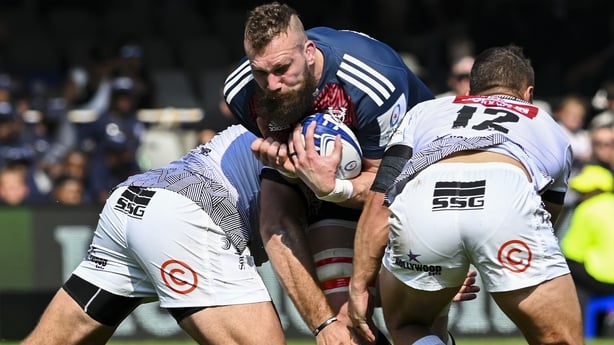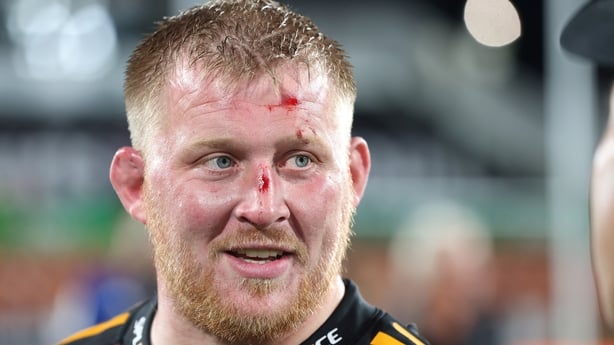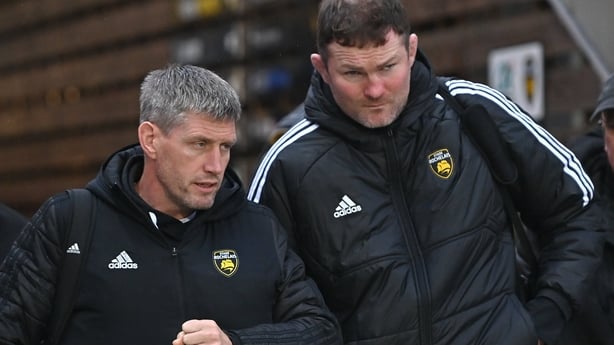This season's Champions Cup, in its inaugural year with the inclusion of South African teams, is changing the landscape of the game.
Where there were once memories of Irish sides going to the scorching south of France to pull off unlikely victories, they now find these challenges on new shores, such as the Western Cape and Durban.
As much as the format is more complex and the challenge has become monumental with the inclusion of international-laden South African teams, it has brought a positive change from a rugby playing perspective.
Munster or Harlequins however may not echo those sentiments at the moment given their respective defeats at the weekend. The pool of talent-rich teams has grown stronger and survival in the competition is even more difficult, never mind competing to win.
The fans may also curse the changing formats at times.
Those that can afford the time and expense to travel further afield will relish the excuse and opportunity to experience some of the picturesque scenery in South Africa, but for most it is not a possibility.

However, when you get to see an Irish team like Munster taking on World Cup winners, it brings another layer of excitement to the game. Calvin Nash duelled with the influential Springbok Makazole Mapimpi and wasn’t out of place either with a handful of scorching runs, despite being on the back foot for most of the game.
The full Springbok front row packed down against Irish internationals, with recent Grand Slam winner Peter O’Mahony taking on the Springbok captain Siya Kolisi.
This can only be good for our game in the long term.
As with the URC, Irish players are playing against the best players in the world more frequently and experiencing a different way to play the game. The Champions Cup competition brings another level of pressure when facing off against these confrontational South African packs.
The Sharks showed their power after owning a lot of possession and territory in the first half, and blitzed Munster with four tries in 18 minutes in the second half.
Bongi Mbonambi broke from two mauls to score a brace of tries and a mixture of strong counter-rucking and defensive pressure gave the Sharks further entries to cross the Munster whitewash. It was a harsh lesson in physical dominance.
Graham Rowntree's side won’t be thrilled about the result and how their pack and setpiece was dominated.
However, from an Irish point of view ahead of the looming World Cup, more exposure to some of these players and the style of game that South African teams play will normalise the phenomenon that is South African rugby in elite competitions.
In the less likely event that the Sharks can turn over Champions Cup giants Toulouse this weekend, Leinster will also have to face the Durban-based outfit in a semi-final, albeit with home advantage.
The southern hemisphere game itself has been struggling on the international scene lately, possibly due to its more localised competitions since the changes brought about by Covid-19 restrictions.
What seemed like the most competitive competition in world rugby, the silo of New Zealand rugby could well have affected how they deal with external influences on the game. Less setpiece dominance and more all-out attacking rugby is a great spectacle, but it won’t be very pragmatic when competing on the world stage.
I managed to catch some of the Super Rugby clash between the Chiefs and Blues at the weekend which was played at a searing pace in horribly wet conditions.

Comfortably situated in the centre of the clash was John Ryan, Cork man, hailing from Iniscarra.
I played with John in UCC, Cork Con and Munster, and he’s as down to earth as they come. He took the field with the enormously influential second-row Brodie Retallick, among others such as Damian McKenzie and Sam Cane. They squared off against the likes of Beaudan Barrett and Reiko Ioane.
John will come back to Irish rugby with tales and experiences against some of the finest southern hemisphere talent and another perspective on how the game is played in New Zealand.
Irish coaches have been afforded the opportunity to coach further afield as well due globalisation of rugby competitions. Clare man Noel McNamara was at the centre of the Sharks win in Durban and Felix Jones has vast experience of South Africa, facing into his second World Cup tournament with the champions before departing for the English backroom team.
It’s more normal to understand French rugby with the amount of Irish coaches that have played and now coach there, but this understanding may be hugely positive ahead of the World Cup in September and October as well.
The likes of Ronan O’Gara, Donnacha Ryan, Mike Prendergast and Bernard Jackman know the country well, they know the mentality in the French game and Ireland will need that information if they are to be more successful than their past World Cup escapades.

Change is difficult, but to embrace it brings opportunities.
South African teams dominating in the Champions Cup means that European teams need to add more strings to their bow if they are to go on to be successful this year.
It also highlights the importance of getting a good draw in the earlier rounds, to bolster your seeding and avoid the difficult travel by playing more games at home.
Toulouse, La Rochelle and Leinster are up there as favourites to win the competition and all three will enjoy more home games than others because of their early dominance in the group stages.
Leinster won’t have to leave Dublin if they are to go on and win the tournament outright, an advantage that they have earned through their performance and results, but an advantage that sees them favourites to end their five-year tournament drought.
South African teams are increasing the standard of the Champions Cup and will cause more trouble this weekend in the quarter-finals.
Watch Leinster v Leicester Tigers in the Heineken Champions Cup on Good Friday night on RTÉ2 and RTÉ Player, follow a live blog on RTÉ.ie/Sport and the RTÉ News app or listen to live commentary on RTÉ Radio 1


